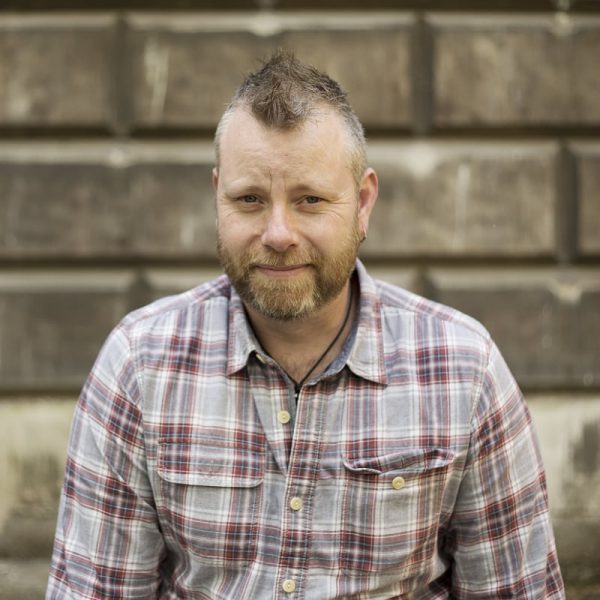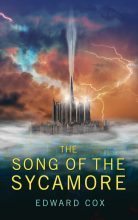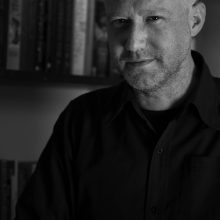The Song of the Sycamore by Edward Cox
What led you into writing?
Hello! I never made a conscious decision to tell stories. I often make a romanticised claim that writing chose me, but the truth is I started penning stories because it was more interesting than what was going on around me. Whether I was in boring lessons at school, or being the only kid around when we visited family, I’d always find a pad and pencil to pass the time. When I started work, I progressed to a typewriter, then a word processor, and finally a computer. It was years before I realised and accepted I was a writer, and that was when I took writing seriously and worked hard to get better at it
But looking back, that doesn’t make me sound very cool and interesting, so let’s say that as a child, while living in a cupboard under the stairs, I was visited by the Wizards of Writing who chose me to be their avatar of storytelling.
How does a typical day look?
A typical writing day begins early in a coffee shop with a notebook and pen. Later, I go home and set up the very laptop I’m writing on now. Then, after some screaming, some pacing, and a little procrastinating on social media, I start typing and keep going till I can’t think or bare to look at the screen any longer. I have a very chaotic writing process. I try to plan, I really do, but I’m simply not very good at it, so my method is akin to smashing my head against the keyboard until legible words appear.
In what ways do your characters test your abilities?
This is a great question, and not easy to answer. I guess the first test comes in the early stages of a story, when I’m still figuring out who my characters are. They need to speak and act as their personality dictates, not as I would in their situation. In the second draft our relationship has matured, so it becomes easier to spot and correct inconsistencies, but the biggest test is then keeping characters true to their nature. Sometimes the logical thing to do is the hardest thing: killing off a character, acts of betrayal, making mistakes which have dire consequences – allowing my children to leave the nest and live their own life is probably how my abilities are most tested.
What’s your setup?

My setup? Well, I write in a haunted garage infested by giant spiders who mostly only come out at night. Mostly. My writing view is a brick wall, and my desk used to be a tumble dryer which died of a sock overdose some years ago. It doesn’t sound like much, but watch this space because all the cool kids will be doing it soon. Picture provided.
What lasting effects have your favourite authors had on your writing and style?
Now then. This is a sort of double-edged blade for me. I’m always studying the mechanics of an author’s style, their technique and wordplay, and I often find so much to admire and learn from. But while disassembling the minutiae helps me to progress my own technique, it sometimes hinders my enjoyment of the bigger picture: the story itself. It’s a pitfall of the craft, I think.
But I would mention two authors here: Joanne Harris and Tad Williams. I enjoy their stories without ever questioning how they do their thing. This is quite a rare occurrence for me. Harris and Williams make storytelling seem so easy, like their tales floated out of the imaginations fully formed rather than coming from weeks and months and years of hard work, which they obviously did. That’s a real inspiration for me, encouragement to graft at making my stories feel natural and easy to read.
What do you do for inspiration?
Walking, listening to music, and most importantly NOT thinking about inspiration. I’m always mulling my stories over, whether I’m aware of it or not. But inspiration will strike when it strikes, and I’ve learned it’s better to embrace the mystery rather than try hunting for it. In saying that, the bathroom is actually a great place for inspiration. I don’t know why, but very often I’ll be brushing my teeth or soaking in the bath and a lightbulb will suddenly ping over my head. So, to answer the question, I don’t do anything for inspiration other than sit on the toilet and wait for it to come to me
What repeating themes do you find yourself pulling into your stories?
Isolation and abandonment come up a lot. That probably says something about me. I’m forever interested in forms of social conditioning and control, whatever the type of hierarchy I’m using in my stories. Of course, it’s all weaved around adventure and magic, with splashes of horror and monsters, but these themes often find their way into my foundations.
How do you wind down?
My wife and daughter are a great help on this front. Mealtimes, outings, watching TV together on the sofa, playing games. Like many authors, I find it difficult to switch off and remember the real world sometimes. Outside of family, I like a good box set binge watch or playing Skyrim. All in all, I could probably do with getting out of the house more.
What sort of challenges do you regularly overcome while world-building?
Well, that varies from story to story, so what’s a good example, here? I know: In the new novel, The Song of the Sycamore, I have a magical source of seemingly endless energy, the most powerful thing on the planet. Finding ways to regulate and limit that energy caused me headaches but had a profound effect on the world-building. Because when this power source goes bad, as it does in the story, it had to be something the world had never seen before, more than anyone could handle. For a catastrophe of this size, I drew inspiration from the Chernobyl disaster.
What’s the most useful advice you could give to an aspiring author?
Keep going. Never lose heart. Read everything you can get your hands on, write as often as you can. I could go into detail about how I write, but what works for me probably won’t work for others, and they’re no keys to the mint. Only you can teach you how to write, and you teach yourself by writing. Whatever stage of development you might’ve reached, put publication to the back of your mind and focus on finishing the tale that YOU want to tell. Do that till you feel it’s written to the best of your abilities. Think about publication when it’s done.
Tell us about the book you’re promoting.
The Song of the Sycamore is inspired by the story of Orpheus and the Egyptian myth of the sycamore. The world is influenced by the Dying Earth sagas and tales of science-fantasy, and there’s magic and monsters, horror and adventure. Here’s the blurb for you:
On the broken world of Urdezha, Wendal Finn died on the hostile plains of the wasteland, one more casualty in the endless war between the city-dwellers and the clansfolk. But now Wendal has returned to his home city of Old Castle, possessed by something he brought back from the wasteland, something old and best left forgotten. Legend calls it Sycamore, an ancient entity out to avenge all victims of murder. And in a city like Old Castle, no one is innocent.
Struggling to piece together the remnants of his former life, Wendal becomes a slave to murderous desires, a pet assassin, host to a serial killer. But when the clans start massing, a supernatural storm begins raging across the wasteland. It has already destroyed one city, and now it is heading for Old Castle. The only one who might prevent oblivion is an ancient spirit of vengeance who does not belong on this world.
The dead call him Sycamore.
👋 Hi! I run Author Interviews
As a new writer I found myself itching to contribute to a thriving, creative community, so I made Author Interviews and I've met loads of wonderful people in the process. You can buy my debut fantasy RINGLANDER: THE PATH AND THE WAY from Amazon.


 Audible
Audible


